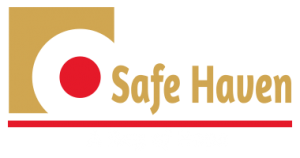About Safe Haven – A Ray of Hope
Conflict of Interest Policy
1. Purpose of the Policy
This policy ensures that decisions made by the Board of Trustees and senior leadership at Safe Haven – A Ray of Hope are free from any conflict of interest or the perception of such. Trustees and senior staff must always act in the best interest of the charity and not allow personal, professional, or financial interests to influence their duties.
2. Meetings
-
Standing Agenda Item: Conflicts of interest will be a standing item at all Board and committee meetings.
-
Declaration: The Chair will remind all trustees at the start of each meeting to declare any actual or potential conflicts of interest.
-
Minuting: Any declared conflict—whether professional or personal—related to agenda items will be recorded in the meeting minutes.
A director must declare if they are directly or indirectly interested in a proposed transaction or arrangement. This includes:
-
Updating the Board if a previously declared interest becomes incomplete or inaccurate
-
Making the declaration before entering into the transaction
-
Understanding that they are expected to be aware of any relevant interests they reasonably should know
In cases of a declared conflict, the trustee will normally be asked to withdraw from discussions and decision-making on the relevant item.
3. The Register of Interests
Trustees and senior leaders must declare any relevant and material interests. These include, but are not limited to:
-
Any senior or influential unpaid or paid role (e.g. trustee, director, board member, patron, or adviser) in another charity, public body, or business that:
-
Supplies goods/services to Safe Haven
-
May compete with Safe Haven or its subsidiaries
-
Has a partnership or working relationship with the charity
-
-
Holding an elected or senior role in a political or advocacy organisation
-
Any personal or professional relationship that could reasonably be seen as influencing objectivity
Declarations must also include relevant interests of close family members (e.g. spouse, partner, parent, child, business associate).
4. Acceptable External Roles
Directors and trustees may retain or pursue other roles or sources of income provided these are:
-
Transparent and declared
-
Not in conflict with the charity’s mission or operations
-
Not creating the perception of undue influence
If in doubt, a trustee should seek advice from the Chair of the Board (or in the case of the Chair, from an agreed external adviser).
5. Potential Conflicts of Interest
While a charity may pay a trustee for services provided beyond their trustee duties (e.g. consultancy or professional services), this will only be allowed where:
-
It is clearly in the best interests of the charity
-
There is no undue influence or conflict in the decision-making process
-
The payment complies with the Charity Commission guidance and the Articles of Association
-
The trustee in question does not participate in the decision
Even where a trustee is not involved in a decision, perceived conflicts may arise due to their connection to others in the organisation. These must also be managed appropriately.
6. Managing Conflicts of Interest
To make sound, objective decisions, the Board will consider:
-
Is this the best use of the charity’s resources?
-
Can another provider deliver the service more cost-effectively, ethically, or efficiently?
-
Is the process fair, open, and well-documented?
Where needed, a formal investment appraisal or comparative review may be undertaken.
7. Recording Decisions
All conflicts of interest and related decisions will be:
-
Recorded in the meeting minutes in sufficient detail
-
Documented with a clear rationale, including any mitigating actions taken
-
Reviewed periodically to ensure transparency and accountability
8. Policy Review
This policy will be reviewed annually, or earlier if guidance changes or a serious conflict-related incident arises.
Approved by:
Blessing Olalemi: May 30th
Kerry- Ann Batten: May 29
John Olalemi: May 30th
Last reviewed: May 30th 2025 | Next review: June 2026
